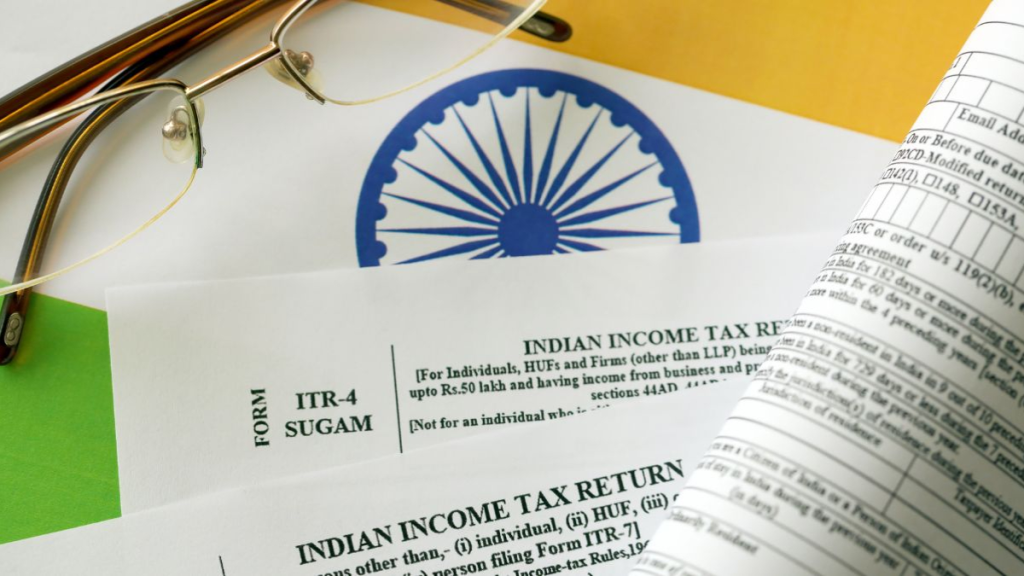The September 15 deadline to file your Income Tax Returns (ITR) for FY 2024-25 is approaching and as per media reports, the Income Tax Department has already flagged around 1.65 lakh cases for detailed scrutiny under Section 143(2), which is a sharp rise in such cases compared to previous years. This clearly means that filing returns does not mean the process or the due diligence of the process is over, as notices can still be issued if the tax department finds mistakes in your ITRs. But what sort of mistakes can flag your returns to the incomes tax officials? Let’s find out.
ITR Filing Mistake No.1 : Mismatch between TDS details and declared income
If the tax deducted at source (TDS) shown in Form 26AS or in your Annual Information Statement (AIS) does not match the income you report in your return, the tax department may select your ITR for scrutiny. This is one of the most common issues faced by salaried employees and freelancers.
ITR Filing Mistake No. 2: False or inflated tax deduction claims can invite heavy scrutiny
Exaggerated claims under Section 80C, 80D, or HRA exemptions without valid proof may trigger penalties. Underreporting income can invite a penalty of 50%, while misreporting with fake documents or receipts can attract a 200% penalty under Section 270A.
ITR Filing Mistake No. 3: Unreported high-value transactions can get flagged by the tax department
The income tax department is very careful in tracking transactions that are of high value. If major financial activities are missing in your ITR, then it could be flagged by the tax officials. For example, if a large cash deposit of Rs 10 lakh or credit card payments above Rs 2 lakh and even equity investments of above Rs 1 lakh should be mentioned in your return.
ITR Filing Mistake No. 4: Not reporting all income sources is an easy red flag
Leaving out earnings such as bank interest, rental income, capital gains, crypto profits, or overseas investments can lead to penalties. Even income that is not taxable must be mentioned in the return to avoid questions later.
ITR Filing Mistake No. 5: A sudden drop in income compared to last year draws attention
If your income suddenly falls compared to earlier years, the tax department may ask for clarification. Valid documents like revised salary slips or job loss letters must be provided to justify the decline.
ITR Filing Mistake No. 6: Changing jobs without proper disclosure may create income mismatches
If you switch jobs during the year and do not merge your Form 16 details correctly, income may appear underreported. If you have claimed deductions from both the employers without verifying details, it can result in discrepancies, and thus a red flag for the income tax department.
ITR Filing Mistake No. 7: Filing wrong ITR form can lead to incomplete reporting of income
If you chose the wrong ITR form to fill your returns, either intentionally or unintentionally, it will lead to incomplete reporting of income. It can either be underreported or misreported, in either case, penalties are bound to follow.
ITR Filing Mistake No. 8: Fake entries or omitted accounts can attract strict penalties from authorities
Under Section 271AAD, false entries, forged records, hidden bank accounts, or manipulated statements can be penalised heavily. The tax department has powers to detect and punish such inaccuracies during scrutiny.
What to do if the Income Tax Department sends you a notice over filed return?
- Check your details carefully: First check that the notice is really meant for you and that its has a valid Document Identification Number.
- Find out why you received it: Look at the section mentioned in the notice that you have received. For example, Section 139(9) is for defective returns and Section 143(2) is for scrutiny, and so on. Identify the concern flagged in your return.
- Keep all documents ready: Keep all the proof of your income, deductions, investments, and other financial transactions ready so that you can support return filed, or corroborate in case of doubt.
- Seek professional advice if needed: In case you find a mismatch of any kind, then it’s better to see a tax expert or a lawyer who can guide you to file a proper and right response. This help can help you avoid penalties.
- Reply within the given time: Every notice that the income tax department issues, comes with a deadline. Make sure to respond with the given timeline as any further delay can lead to a harsher action.

